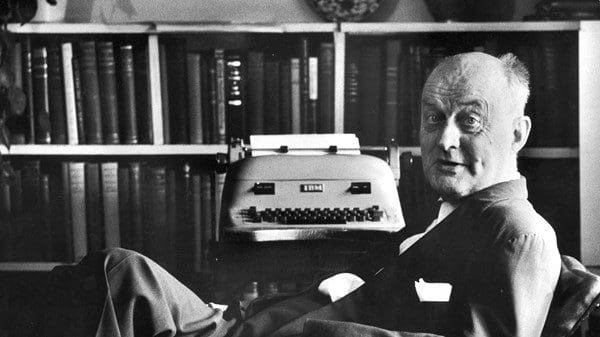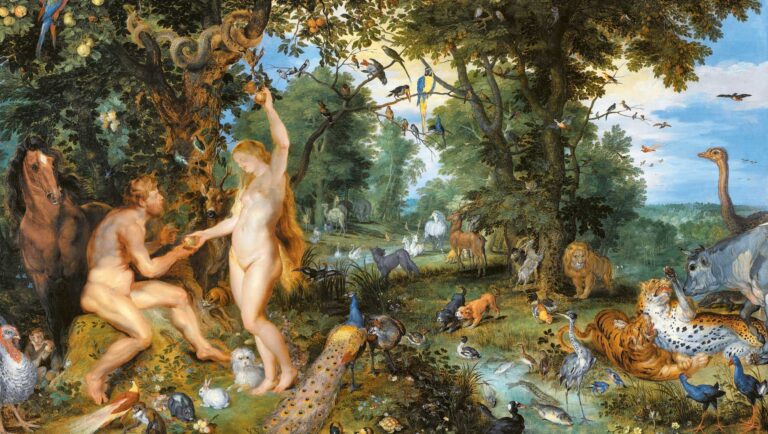What approach should Christians take to modern politics? What are their obligations in contemporary public life? Which Christian values should be endorsed in modern democracy and which political instruments are permitted while doing so? Several Christian philosophers, theologians, and politicians have in the past sought to provide answers to these crucial questions. Our series of articles intends to rekindle interest in those authors, firstly because we believe that these authors receive less attention than they deserve, and without forgetting the extensive academic literature on them (since most of them attract serious scholarly interest) we argue that their ideas are underrepresented in public discourse. Secondly, we believe that to answer the questions raised above, one should be able to study acknowledged theologians and philosophers who are well-versed in the wisdom of the Christian faith and base their political arguments on it. Consequently, the political insights of modern theologians will be presented with a special focus on the Christian origins and sources of their ideas. We hope that these articles will increase public interest in these inspiring figures.
Our first article investigates the former Dutch prime minister and Neo-Calvinist theologian, Abraham Kuyper’s anti-modernism. We are examining the work of Reinhold Niebuhr (1892–1971), one of the most influential American protestant pastors, university professors, and (public) theologians of the twentieth century. A lot could be cited from Niebuhr’s rich intellectual legacy, namely his early experiences of a Detroitian pastorship, through a radical socialist, even Marxist (but never communist) period in the first half of the 1930s, to his mature Christian realist era in the 1950s (and so forth). This article examines a nowadays less quoted part of Niebuhr’s thought, which is also related to his emphasis on the sinfulness of human nature, the idea of the ‘easy conscience of man’. Niebuhr theological opus magnum, the two-volume The Nature and Destiny of Man: A Christian Interpretation was prepared for his Gifford Lectures in Edinburgh and it includes a separate chapter on the topic. By providing a short, but thought-provoking summary of this chapter, this article wishes to lead the reader into Reinhold Niebuhr’s insightful and today still relevant thought.
The underlying idea of Niebuhr’s writing is based on one of the central controversies of modern man[i]. He declares that ‘contemporary history is filled with manifestations of man’s hysterias and furies; with evidences of his daemonic capacity and inclination to break the harmonies of nature and defy the prudent canons of rational restraint. Yet no cumulation of contradictory evidence seems to disturb modern man’s good opinion of himself. He considers himself the victim of corrupting institutions he is about to destroy or reconstruct, or of the confusions of ignorance which an adequate education is about to overcome. Yet he continues to regard himself as essentially harmless and virtuous’[ii]. As an example of demonic politics, Niebuhr refers to the political tyranny of Russia, but obviously, Nazism and other cruelties of modern history are also meant here. The most influential thinkers of the modern era —including the idealist Hegel, the materialist Marx, and the romantic naturalist Rousseau—agreed on the essential goodness of man, but the whole culture interiorized the idea that even though institutions or religions could make it evil temporally, man is intrinsically good. But how is it possible that the modern man is so sure about his good conscience, while modern history is full of man’s cruelties, asks Niebuhr the penetrating question.
Obviously, modern man is not so fool to believe that there is no evil in human history
It acknowledges the existence of evil, but the source of evil is never himself but some particular event in history or some specific historical corruption, argues Niebuhr. There is always someone responsible: in the eighteenth-century ‘human evil was variously attributed to the corrupting influence of religion or to tyrannical governments and ignorant legislators who had disturbed the harmony of nature’[iii]. The general anti-religious attitude in the eighteenth century was represented by, among others, Holbach’s and Helvetius’s forceful attacks against historical religions. These—similarly to other—authors could shed a light on the character of social evils and may have helped to eliminate or mitigate them. In the eighteenth century, they could also perceive well that all tyranny and fanaticism consists of a religious element. Yet, they were wrong to attribute them to the corruptions of particular historical religions. They were wrong because they did not ask where the corruption comes from, or what its ultimate source is. Moreover, history also proves that their prediction that the abolishment of historical religions would free the world from coercion, was wrong. Paradoxically, the modern man hoped for emancipation from the repression of the historical religions and now (Niebuhr refers to his era) faces ‘the worship of Hitlers and Stalins and other new priest-kings who manage to assert their ridiculous pretensions without the benefit of clergy.’[iv]
The same fault was committed by the philosophers who investigated the problems of governments and found the source of evil in historical causes without asking how those causes appeared. For instance, eighteenth-century liberalism treated the oppressive political organization as the cause of evil while Marxism—which had a ‘strikingly similar’ view of human nature—detected the source of evil as the fault of the economic order. Others, like Hobbes, Locke, physiocrats, or authors from the French Enlightenment could be mentioned as well (and are mentioned by Niebuhr) but the same conclusion regarding their mistakes could be drawn: ‘A particular manifestation of evil in human history cannot be regarded as the source of a general evil inclination. It is, on the contrary, but the fruit and consequence of a profounder root of evil.’[v]This more profound root of evil is what Christian thought understands better than these authors would argue Niebuhr. But before learning the Christian, or more precisely, Niebuhrian answer where the real root of evil is, let us face the misunderstandings of modern naturalists and idealists and their possible disastrous consequences in modern times.
Let us take a look at the naturalists first. Niebuhr usually differentiates between two kinds of naturalists: the romantics and the rationalists. The exemplar romantic naturalist is Rousseau who wanted to return to nature, or in his words, to ‘retire to the woods’ in order to avoid the vices of human societies. This wave of thought has an advantage over rationalist naturalism since it is aware of the fact ‘that the freedom of the so-called rational man is not harmless and that it is not easily conformed to the order of either nature or reason.’[vi] It also understands that there is a difference between “purely natural impulse” and “human and spiritual impulse of pride and power”; this is what Niebuhr usually distinguishes as natural will-to-live and spiritual will-to-power. Still, it forgets that the freedom of man is not just the source of evil, but the source of creativity as well; by fleeing back to the woods, the creative powers of human freedom are constrained as well.
The other kind of naturalism is the rationalistic one, which has several proponents including some rationalistic contemporaries of Rousseau (Helvetius and Holbach), nineteenth-century utilitarians (James Mill, John Stuart Mill, Jeremy Bentham), and twentieth-century philosophers (John Dewey). In short, they still regard nature as a crucial impulse but—in different forms, proportions, and for different cases—would use reason to guide those natural impulses. In this perspective, either reason becomes the seat of virtue, or a secondary source of virtue besides nature. Niebuhr calls attention to the fact that in several authors, the relation of nature and reason is not elaborated clearly. Yet, the most significant problem is that the ‘modern naturalist, whether romantic or rationalistic, has an easy conscience because he believes that he has not strayed very far from, and can easily return to, the innocency of nature.’[vii]
The third, and last criticized trend is idealistic rationalism, which provides a simpler approach to moral optimism than naturalists. As Niebuhr suggests: ‘Its confidence in the goodness of man rests upon a sharp distinction between nature and reason, between nous and physis. The order and inner coherence of reason is regarded as a safe retreat from the chaos of natural impulse; and the power of reason is considered sufficient to master and coerce natural vitality and transmute into a higher realm of coherence.’[viii] The benefit of this perspective would include that it understands the human spirit better, but commits a fault by identifying spirit and reason too completely. This false identification results in the fact that idealistic rationalism ‘obscures the fact that human freedom actually transcend the capacities which are usually known as “rational”.’ It is also not aware that man, living with his freedom can violate reason in his own interest.
The idealistic authors are optimists since they believe that society—even though it might be in some lag—sooner or later will be governed by rationality
Hegel and Kant are the two inspirational figures since the idealistic thought in modern culture are derivations from either of them. Their fault, concludes Niebuhr, was that they regarded spirit as essentially good, which made them fail to define sin as spiritual. Some might think that pessimist or cynic authors like Hobbes, Nietzsche, and Freud are exceptions to the general moral optimism regarding human nature. They are wrong as well, says Niebuhr, who underlines that ‘there are pessimists about human nature, who are nevertheless of easy conscience, because they do not hold man himself responsible for the evils in human nature.’[ix] After learning what are regarded as the sources of evil and what are the sources of virtue, the question remains: why is the stubborn resistance that man is intrinsically good if historical facts do not validate it and the underlying theories suffer from several serious controversies and mistakes? Niebuhr concludes that the ‘source of resistance is not primarily modern but generally human. The final sin of man, said Luther truly, is his unwillingness to concede that he is a sinner.’ Right, but theoretically where is the basic mistake? It lies in the misunderstanding of human nature and human freedom. Naturalists and rationalists do not consider human freedom as it is. They are not aware that man has a freedom of spirit that transcends both nature and reason. ‘Both the majesty and the tragedy of human life exceed the dimension within which modern culture seeks to comprehend human existence. The human spirit cannot be held within the bounds of either natural necessity or rational prudence. In its yearning toward the infinite lies the source of both human creativity and human sin.’[x]
Why is this Niebuhrian philosophical and theological argumentation presented above relevant for us? Let us mention three here. First —as Niebuhr refers to it—abstract ideas that offer too simple solutions to complex and perplexing problems can lead to disastrous consequences. Misunderstanding human freedom and human nature can lead to demonic politics, just to mention those who built tyrannies on the ideas of Rousseau’s general will or Marx’s revolutionary ideas. Second, if our goal is theory construction (either philosophical or political), it is a must to understand human nature and human freedom as well as it is possible. Third, it is not just theory, but practice as well that can benefit from the right knowledge of human nature and freedom. For instance, politicians and public intellectuals could also act more prudently if they were aware that human freedom is both the source of creativity and the source of sin. In our days, unfortunately, the latter is almost entirely forgotten.
[i] Just like other authors in his age, Niebuhr used “man” as a universal term that includes all human beings. For the sake of simplicity and originality this term will be used if Niebuhr’s thought is referred to.
[ii] Reinhold Niebuhr, The Nature and Destiny of Man. A Christian Interpretation (Westminster: John Knox Press, 1996), 94–95.
[iii] Niebuhr, The Nature and Destiny of Man, 97.
[iv] Niebuhr, The Nature and Destiny of Man, 98.
[v] Niebuhr, The Nature and Destiny of Man.
[vi] Niebuhr, The Nature and Destiny of Man, 104.
[vii] Niebuhr, The Nature and Destiny of Man.
[viii] Niebuhr, The Nature and Destiny of Man, 112.
[ix] Niebuhr, The Nature and Destiny of Man, 121.
[x] Niebuhr, The Nature and Destiny of Man, 122.








